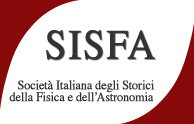Speaker
Description
In recent years, two distinct accounts of collaborative knowledge have been proposed: the commitment model and the distributed cognition model. The commitment model emphasizes the importance of joint commitment among group members to shared beliefs in order that the group results can be regarded as collective achievements. In contrast, the distributed cognition model involves breaking down a task into components assigned to different group members, with a focus on how these components contribute to the overall task.
At first glance, these models seem opposed, particularly regarding the necessity of commitment to specific beliefs in collaborative efforts. However, in this presentation I will adopt a compatibilist perspective, arguing that both models capture essential aspects of scientific collaboration. Drawing on Laudan’s distinction between accepting and pursuing a hypothesis, I will suggest that a compatibilist account can effectively understand real cases of scientific collaboration, provided that we consider as fundamental not the commitment to believe or accept certain tenets, but rather the commitment to pursue the objectives of a given research project.

